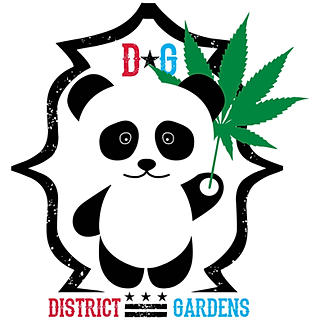Al Harrington-backed Village is aiming to support women- and minority-owned cannabis companies
- District Gardens DC
- Dec 22, 2021
- 3 min read

Village co-founder Dan Pettrigrew is helping steer the company toward growth in New York and other states coming on line with adult-use licenses
With states such as New York planning to issue social equity cannabis business licenses to African-Americans and other groups displaced by the War on Drugs, Village LLC is positioning itself as a Black-led player in the space.
Entrepreneur Dan Pettigrew and 16-season NBA player Al Harrington launched Village LLC in 2019, about eight years after the launch of Viola, the premium cannabis brand named after Harrington’s grandmother who treated her glaucoma with cannabis.
Their goal for Village is to build a multi-state operator not unlike larger businesses such as Curaleaf CURLF, 0.78%, Trulieve TCNNF, +0.60%, Green Thumb Industries GTBIF, +2.29%, Ayr Wellness AYRWF, +2.41% or Cresco Labs CRLBF, +0.64%, but with a majority of key executives being women or minorities.
“The concept for Village is to work through the application process as well as through mergers and partnership, to develop a platform so that minority-owned cannabis brands can exist,” Pettigrew said. “Every state is regulated differently. Getting into these markets has proved challenging. The initial route is competitive and expensive.”
At the moment, only about 3% of cannabis companies are run by women or minorities. While states have awarded valuable business licenses to people of color in the past, it’s been costly and challenging to get financing and build a viable business. Many license holders are then forced to sell to larger companies led by a less diverse lineup of executives.
Village LLC has raised $6 million in backing from African-American investors and their family offices. The company is currently completing a $30 million debt deal and a joint venture valued at about $18 million. Since the transactions are not yet complete, Village declined to provide details.
All told, Village currently holds 10 licenses in four states. It’s also exploring joint ventures in three other states and pursuing licensing opportunities in Maryland and New York, where the process is expected to take until some time in 2023.
As 2021 comes to a close, Village has about 50 employees and expects to increase that number to about 150 by the end of the first half of 2022. Village plans to add six more states to its footprint in 2022 through license applications, joint ventures and M&A.
While Harrington remains a celebrity from his years in the NBA, having a big name attached to a cannabis product is no guarantee of success, Pettrigrew said. A celebrity brand has to have a strong business and authenticity, not just a big name pasted onto a product.
“The benefit of a celebrity brand is you get attention, but when somebody has to buy a product,” Pettigrew said. “I’m not convinced the celebrity brands have been able to influence that part of the decision making process.”
But with the right business plan, people with name recognition remain a potential plus for Village, he said. The company plans to work with stars from the world of sports and entertainment to bring their expertise to bear on licensing, manufacturing and other aspects of operations.
“We want to create a platform for celebrities to bring attention to cannabis, but not have to worry about licensing and manufacturing and all the headaches we deal with,” Pettigrew said.
The company has no plans to go public on the Canadian Securities Exchange or OTC stock market in the U.S.
“Staying private allows us control,” he said. “We don’t have to worry about the concerns of shareholders. We can focus on putting one foot in front of the other and growing the business as aggressively as possible.”





Comments